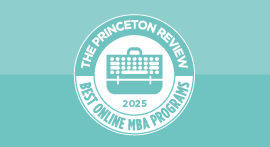Academics
There is no rest for the weary at Tuck, where the “intensive academic core for first-years is accelerated and rigorous.” During the elongated (thirty-two-week) school year, students take eighteen courses, two of which are electives. One of these is Tuck’s trademark FirstYear Project, a course in which student teams develop new business ventures or act as consultants in existing ventures, and in which grades rest on the final presentation and other outcomes. This method reflects Tuck’s emphasis on “academic deliverables, such as group papers, projects, and presentations.” The second year consists of 12 elective courses, which may reflect well-rounded interests or a specialization. For example, Tuck recommends that a student interested in nonprofit and sustainability management take Corporate Social Responsibility, Entrepreneurship in the Social Sector I and II, Ethics in Action, the Tuck Global Consultancy international field study, and Strategic Responses to Market Failure. One student reports, “I feel completely prepared to take on my career post-Tuck. The school does a fantastic job of working students hard in the first year, teaching them the core fundamentals of business, and letting them craft their own paths during the second year.” One student notes, “Tuck could update its core curriculum and case study assignments to reflect the current business environment, i.e., more standard courses to better understand the private-market investment climate, corporate ethics, digital media/entertainment, and emerging economies.”
Tuck operates through “full immersion.” Students “do a lot of work in study groups, which are assigned and required for first-years.” Mandatory team rotation forces each student to work closely with a wide swath of his or her peers during the first year. The small class size and rural location reinforces class cohesiveness and fosters intimacy between MBA students and Tuck faculty and staff. Professors host social “gatherings at their homes and get involved with student organizations.” “I have had lunches, dinners, or drinks with the majority of my professors,” reports one second-year, “and I am treated with a respect that goes beyond [typical] teacher-student interactions.” Administrators are “the nicest people on Earth.” Some have even been known to “come in on a Sunday evening and bring food and coffee for us when we have exams.” The overall “quality” of faculty and administration alike is “extraordinary.”




